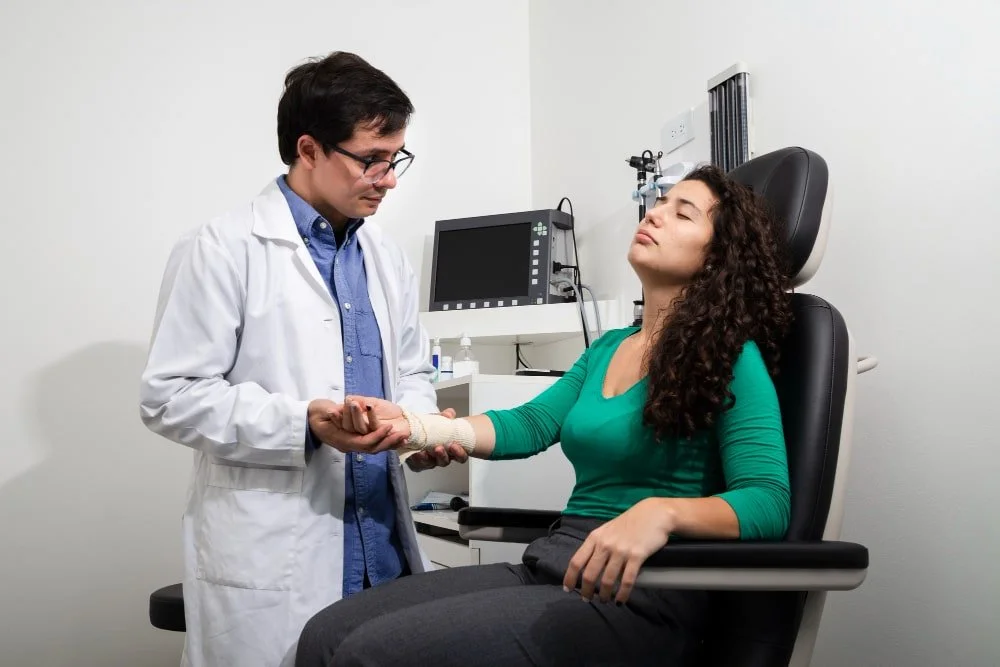Why Ignoring These GI Signs Could Be a Big Mistake
When your stomach acts up, it's easy to chalk it up to something you ate. But what if it's more than just a passing discomfort? Ignoring persistent gastrointestinal (GI) issues can sometimes lead to serious health concerns. Recognizing when to seek help is key to preventing complications. If you're experiencing unusual or severe symptoms, consulting a GI specialist in OKC might be your next crucial step toward reclaiming your health.
Stomach Discomfort After Meals
Experiencing discomfort or cramps post-meal could be indicative of Crohn's disease, a chronic inflammatory condition of the digestive tract. These symptoms typically intensify during active phases of the condition and might be accompanied by diarrhea, joint discomfort, and a decrease in weight. Consulting a GI specialist is crucial for managing these symptoms effectively.
Abdominal Distension
A noticeably firm and enlarged abdomen may result from blockages that prevent food and liquids from moving through the intestines due to various causes, including infections, hernias, or abnormal tissue growth. Symptoms often include abdominal cramps, a lack of appetite, difficulties in bowel movements or gas expulsion. Immediate medical evaluation by a GI specialist is recommended.
Vomiting with Blood
The presence of blood in vomit, resembling fresh blood or coffee grounds, might signal an ulcer in the stomach or upper intestinal lining. This condition can cause burning or gnawing chest pain that temporarily subsides with antacids. Such symptoms necessitate urgent care or a visit to the emergency room.
Navel Discomfort
Pain around the navel area may suggest a urinary tract infection (UTI), especially prevalent among children, characterized by a dull ache or pressure. This symptom, often paired with fever and a burning sensation during urination, could also overlap with pelvic inflammatory disease symptoms or signal appendicitis. A GI specialist can determine the underlying cause and recommend appropriate treatment.
Alarming Signs in the Restroom
Noticing bright red blood during toilet visits should prompt a call to your GI specialist. This bleeding might originate from hemorrhoids or rectal tears. Although less common, colon cancer, colitis, diverticulosis and colon polyps are potential causes of such bleeding, underscoring the importance of a prompt evaluation.
Upper Abdominal Anguish
When sharp pains seize the upper region of your abdomen, it might signal a gallbladder under siege by gallstones, obstructing bile's exit route. This discomfort, known to intensify swiftly, can strike regardless of your last meal, potentially radiating to your shoulder, accompanied by nausea or vomiting. Consulting a GI specialist is crucial to decode these symptoms. Should the severity escalate, prioritizing an emergency room visit becomes imperative.
Right-Side Belly Pain
A sudden, sharp pain asserting itself on your abdomen's lower right heralds a classic appendicitis symptom—your appendix's inflammatory distress call. Initially hovering near the bellybutton, the pain migrates rightward, intensifying with time. Prompt attention from a GI specialist is advisable to navigate this situation.
The Fullness Factor
Feeling unexpectedly full with minimal food intake may point toward an ulcer or GERD (gastroesophageal reflux disease), with long-standing diabetes possibly inducing gastroparesis—slowed stomach emptying. While rare, certain cancers (ovarian, stomach, or pancreatic) could also be culprits. A GI specialist's insight is vital in discerning the underlying cause.
Dark Stool Warning
Encountering unusually dark or black stools might be alarming, suggesting upper GI tract bleeding. Consumables like black licorice, iron supplements, or bismuth subsalicylate might also be influencing stool color. Immediate evaluation by a GI specialist is recommended to determine the cause.
Sudden Severe Pain
Experiencing a persistent, pulsating ache in your abdomen could indicate an abdominal aortic aneurysm, particularly a concern for individuals over 65, smokers, or men. This condition involves a dilated aorta segment that, if ruptured, poses severe bleeding risks. Constant stomach or back pain, feeling a heartbeat near the belly button, or experiencing a sudden, intense tearing sensation necessitates urgent emergency care.
Unmistakable Hunger Pains
Stomach ulcers, essentially open wounds on your stomach's lining, manifest as intense, gnawing discomfort centered in your abdomen, mimicking severe hunger pangs. This discomfort may also extend up to your neck or back, indicating it's more than just typical hunger.
Relentless Diarrhea
When diarrhea extends beyond a few weeks, dismissing it as a mere stomach bug might be misleading. Conditions such as irritable bowel syndrome (IBS), inflammatory bowel disease (IBD), or even underlying issues like infections, thyroid problems, or food allergies could be the culprits. Consulting a good GI specialist could provide clarity and a path toward relief.
Consulting a GI Specialist
Experiencing any of these symptoms can be both frightening and uncomfortable, but recognizing when to seek help is vital. A GI specialist can offer not only diagnosis and treatment but also peace of mind. In OKC, specialists are ready to assist you toward a path of better digestive health. If you've noticed any of these symptoms persisting, it's time to make that important call.
Take Control of Your Digestive Health with Screen The City
Experiencing persistent digestive issues that just won't go away? Screen The City partners with leading GI specialists in OKC to provide you with comprehensive screenings and personalized care plans. Whether it's a nagging hunger pain or continuous diarrhea, our experts are here to help diagnose and manage your condition effectively. Don't let digestive discomfort control your life. Schedule your consultation today and step toward a healthier, more comfortable you. Trust Screen The City for all your gastrointestinal health needs.
**Disclaimer: This blog content does not intend to offer a doctor’s advice and mentions no relationship between any patient and the care provider.

